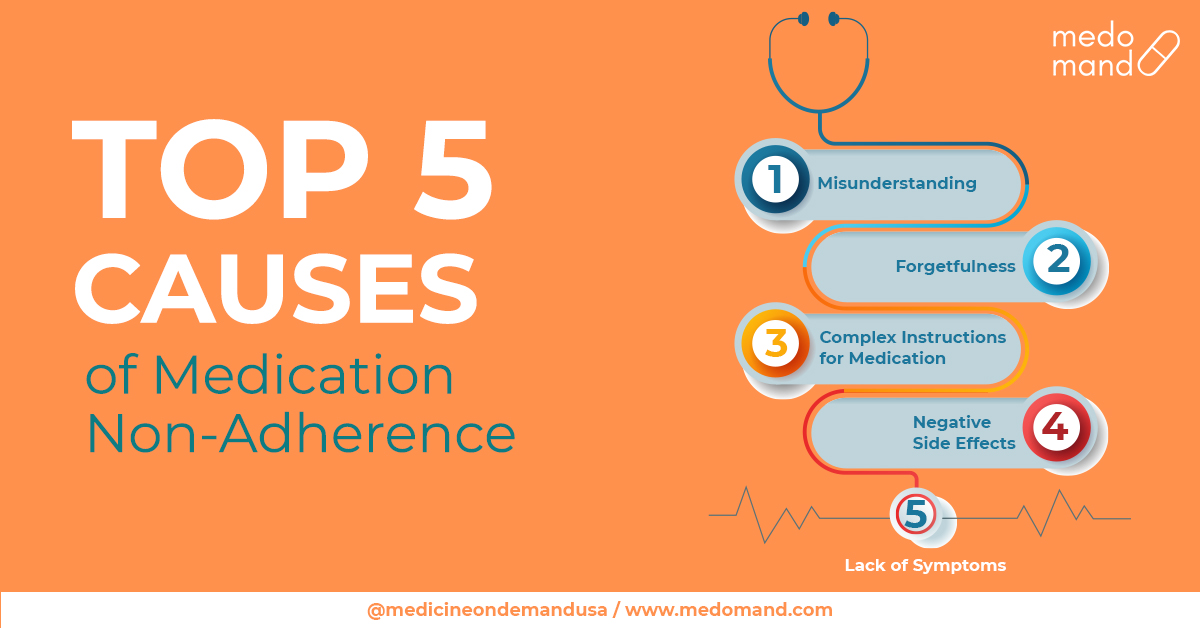Taking medicines properly may seem like a personal matter or simple. However, not taking medicines as directed or non-adherence is a complex and common problem. Out of four Americans, three do not take their medication as directed.
People don’t realize the consequences or real damage of non-adherence. When patients with chronic medical conditions like cardiovascular disease don’t take medicines as prescribed or instructed, severe repercussions, such as not keeping your blood pressure in check, can lead to kidney failure, stroke, and heart disease.
There can be many reasons behind not taking the medications as directed. Some people may neglect taking their medicines for unintentional reasons, while others may do it intentionally. By having the proper understanding of the causes, you can work on getting better solutions for medication adherence with the help of your healthcare providers. The causes behind the non-adherence of the medication can help to reduce the risk of not taking the medicines.
Here are the reasons to explore that drives non-adherence of medication.
Misunderstanding
The directions of how and when the medications must be taken can be complicated. Whether the medications should be taken after a meal or during the meal, what medicine is prescribed for and how long the medicine should be continued, is the information that can be misinterpreted or misunderstood between the patient and doctor.
Research has shown that only forty-nine percent of patients remember the guidelines or directions after visiting the doctor. Patients are unsure of how to take the medicines. So, they tend to miss the medication completely, medicating in excess or taking the meds in wrong way, resulting in avoidable severe side effects.
There is a simple way to manage this cause. Patients must be ensured that they have easily accessible information to revisit when required. Moreover, there are various smart solutions that provide information that may be of interest to behavioral patterns. It is very important to educate the patients to continue on their medication and condition to help them build support and trust them when required.
Forgetfulness
Many distractions get in the way of taking medicines as directed. It leads to forgetfulness and a lack of a medication-taking routine. Like implementing a new habit in your life, incorporating medication into routine can be challenging initially. You require setting reminders, responsibility, and the drive to stay regular with your medication.
Even a slight change in schedule or environment can throw off the daily routine leading to missed dosages. It is human nature to get distracted and forget things due to other life issues, even when you have a routine. Besides, new medicines may also alter memory capabilities. This is the reason reminders are important to support you when you require the most along your medication journey.
Complex Instructions for Medication
Instructions and prescription labels with great information can be confusing and overwhelming for patients. These gaps can derive from various unique scenarios such as:
- If the patient doesn’t speak English, they can’t understand how to take the medicines properly.
- The cultural background of the patient lends to mistrust of doctors, and they may believe that the medication is not necessary.
- When the physician or healthcare provider uses jargon-filled language, the patient may feel too embarrassed to admit that they do not understand it.
A complex medication schedule is also another reason. It requires the support of the medication organization apart from the need to set reminders to take doses throughout the day at the right time. To help a patient stay on track, accountability plays an important role. Thus, incorporating support from a caretaker or a partner is beneficial. In addition, receiving reminders for the refilling of prescriptions can further support patients to keep them proactive and supportive of their medication adherence.
Negative Side Effects
Experiencing negative side effects or the fear of perceived side effects may cause medication non-adherence. The side effects of a medicine may be too intense or negative that you don’t want to continue taking them. The general adverse side effects that would make patients stop taking the medicines as prescribed are skin irritation, fatigue, dizziness, upset stomach, nausea, and weight gain, among many others.
Like worry and fear, the patient may stop taking their medicines intentionally due to the negative side effects. It is crucial to report any side effects and discuss how to handle them with your doctor. The healthcare providers may inform the patients about the possible effects that can appear along the way, how to manage them and when to change the medicines if they become too adverse.
Ensuring the patients that the adverse occurrences can be easily reported and that they will be taken care of immediately may help the patients. Moreover, when educating the patients on overcoming the specific barrier, the healthcare providers must emphasize the importance of taking the medicines as prescribed and encourage patients to speak with their pharmacists to talk about possible solutions.
Lack of Symptoms
If the medication is being taken to avoid some medical event in the long run or when the patient doesn’t feel the positive direct effect from having medicine or direct adverse effect from not having it, then it is harder to keep the motivation high for medication adherence. It is quite difficult to maintain a medication when the medicine is preventive.
For instance, taking pills for cardio-protective treatment might prevent a cardiac attack in fifteen years. Usually, medication non-adherence starts with missing a dose without any adverse side effects, and then more doses are tend to be missed, leading to going a whole one week without medicine. This pattern of taking the medication is broken. It proves the point further as to why educating patients about their medication continuously is beneficial.
Conclusion
Medication adherence has been a serious problem among the American population. Today, however, it is fortunate enough to have the cutting-edge technology that offers solutions to control medication non-adherence and health care systems committed to improving the quality of treatment and care.
Medomand provides all kinds of medication and reminders for taking them and options for an automatic prescription refill, helping you with medication adherence.
Disclaimer: The information contained in this article is for educational and informational purposes only and should not be relied upon for any diagnostic or medical purpose or the treatment of any symptom or condition.

